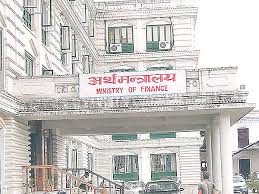Draft of ‘progressive’ Development Cooperation Policy prepared

Kathmandu / Jan 7: The government has prepared a draft of the Development Cooperation Mobilization Policy, 2081 BS, aimed at enhancing the management of development cooperation in response to the changing national and international scenario in the relevant area.
This policy aligns with the shifting priorities of international development partners, a decline in concessional loans, the growing role of the private sector, and the increasing importance of development cooperation at the provincial and local levels under the federal system.
The structure of foreign aid is getting changed due to challenges faced by development partners in financial management. These changes, along with the need for policy revisions to meet contemporary demands, warrants an introduction of a progressive policy, according to the Ministry.
The new policy will focus on the effective mobilization of development cooperation to achieve impactful results in line with the country’s priorities and needs. It will aim to strengthen cooperation with development partners to progress towards the Sustainable Development Goals (SDGs) by 2030, advance climate mitigation and adaptation through climate finance, and mobilize resources to support the implementation of periodic plans, it is said.
“There is the need for further clarity of policy on mobilization of development assistance for augmenting the role of the private sector in the development works. Inter-agency and inter-government coordination and collaboration is required in mobilization of development cooperation as the volume of development cooperation increases in the province and local bodies,” the draft policy states.
It has been pointed out in the draft that since it is not possible for the development efforts to gain meaningful momentum only with the sole efforts and means of the government, there is the need to utilize the resources, knowledge, skills and experience of the private sector and other development partners for this.
“There is need of a new policy for mobilizing and using new financial tools by internalizing the newer concepts, financial implements and methodology of development cooperation.
After Nepal is upgraded from the status of a underdeveloped to a developing country in 2026, there may be some impact on the concessions and facilities that Nepal has been receiving and with the increase in per capita national income, the cost of assistance to Nepal will gradually increase, grant assistance will decrease and concessional loan repayment period will be reduced,” the draft states.
It has been proposed that the development assistance to be received in the form of grant should not be utilized for the purpose of tax payment while the ministry could provide tax exemption facility at recommendation of concerned ministry regarding import of equipment and goods to be received or tax liability has to be bear from government’s sources.
However, in project of loan assistance, provision of tax exemption would not be included and Tax exemption would not be given in import of goods produced in the country.
An employee of International Economic Cooperation Coordination Division of the Ministry said the draft was prepared with an objective of issuing progressive development cooperation policy to increase foreign aid and stakeholders are requested to provide suggestions.RSS
